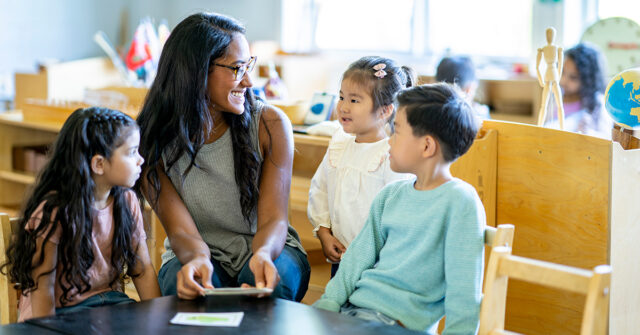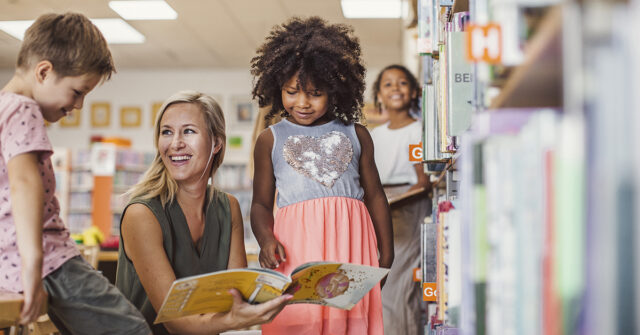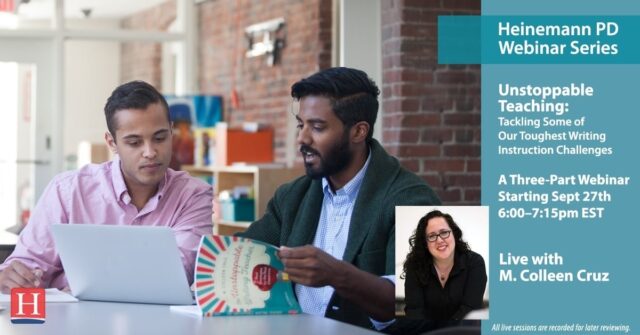
We can all agree that in the life of a reader, the right book at the right time makes all the difference. But how do we know which book? What time is the right time? How do we assess both a reader’s growth and identity? How can we possibly know what engages all of our readers? How do we fit it all in?
We know teachers cannot add one more thing to the daily schedule. The good news is you don’t have to! The best way to get to know readers and to connect them with books is by doing what we naturally do every day - talk with them about books, observe them interact with books, and invite them to help organize the classroom library. A win-win for everyone - real interactions, real literacy, real data!
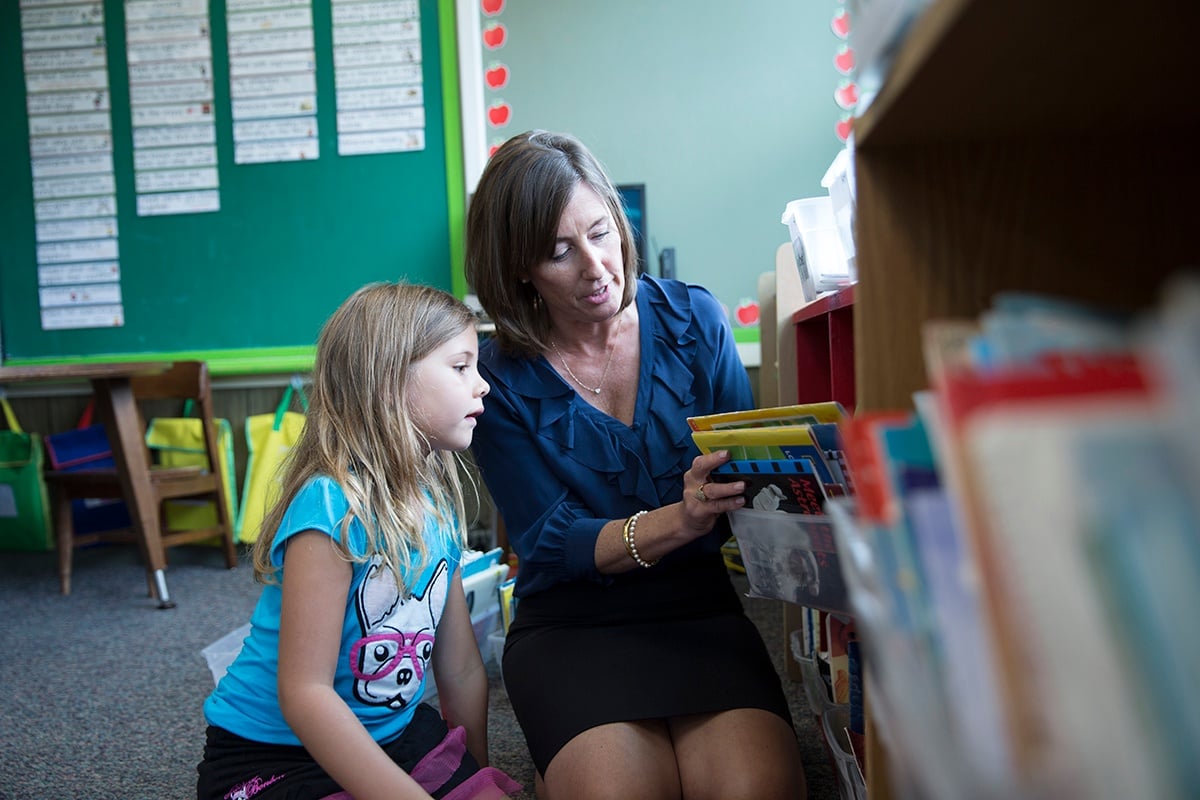
1. Book Talks
Teachers spend a lot of time formally assessing students throughout the year. While we appreciate how these formal assessment tools help us understand our readers, we believe there is nothing more powerful than taking the time to talk with our students about books. These informal conversations are priceless and provide the information we need to engage each reader. We personally like to have these conversations in the classroom library whenever possible - if not we are sure to carry some book baskets with us as we rotate among students. As we listen to each student we learn more about their interests, passions, and reading life. We then turn to the book baskets and together we choose several books to preview. Other times, students introduce us to a new title, author or series and we make note to add these books to our classroom library. As we talk with students, we use a display called the Messy Sheet (any small group planner will work) to record and organize the patterns that emerge as we talk with our students about their interests and goals. We write the book, author, genre, series, or interest inside the circle and the names of the students for each around the circle. This display helps us see book club and small group opportunities quickly. (Assessment in Perspective, 2013, p. 60)
We also end each formal assessment with book shopping to ensure we are using the data we are collecting to directly impact our readers. If we wait to think about text choices until after we have assessed 20 or 30 students, the task of matching books to readers is daunting. If, however, we think about text choices right after we assess – formal or informal- the learning goals and the student’s interests are fresh in our mind and the task of matching books to readers is manageable. When we analyze the Messy Sheet we can quickly determine the types of texts our students want; the instructional goals in our class; connections between students’ interests and upcoming curricular units; and the possible interest or inquiry small groups we can form.
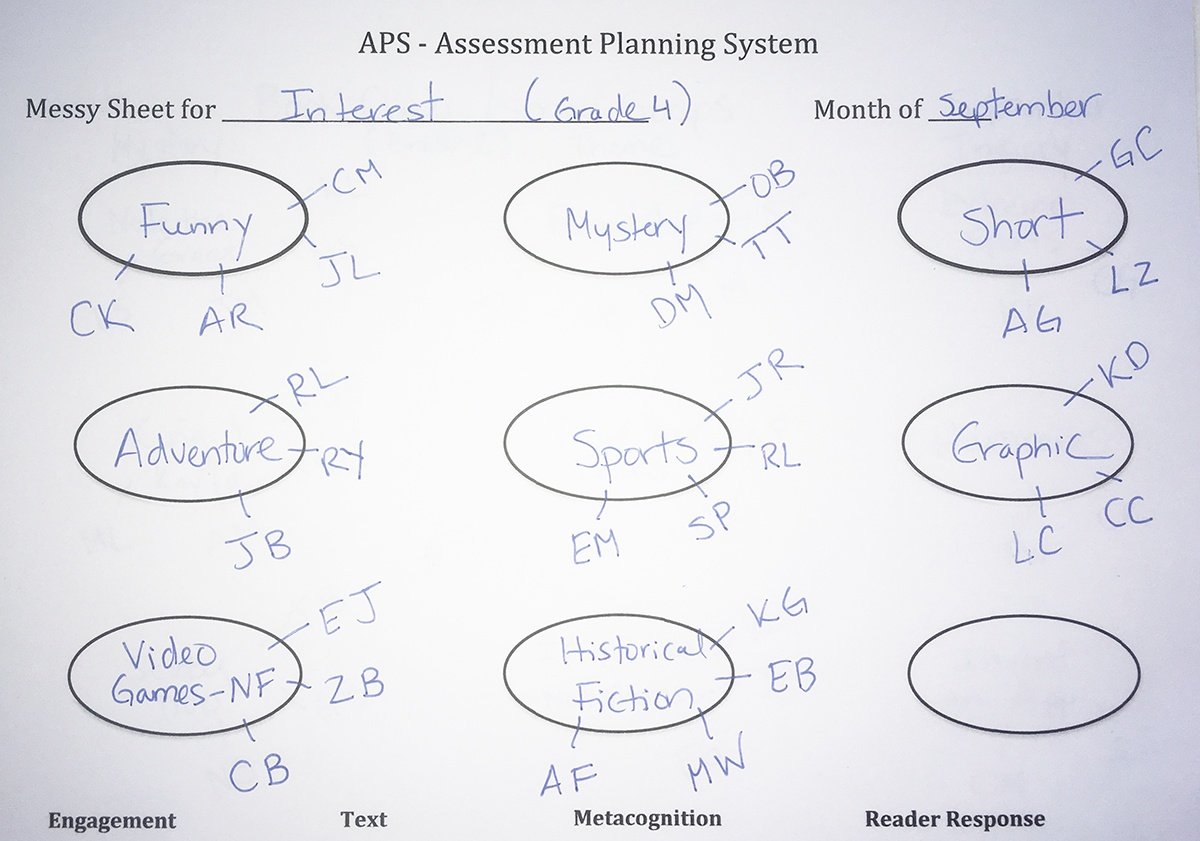
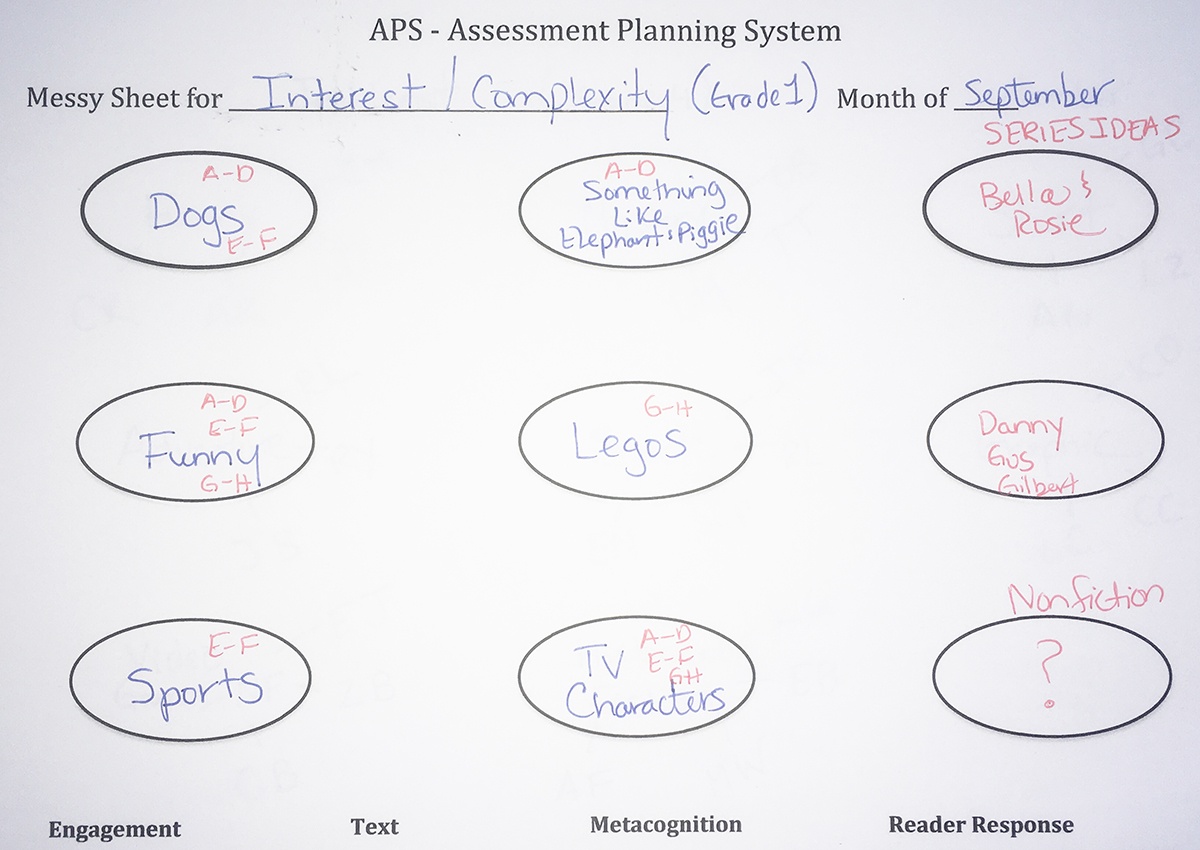
2. Book Shopping
We also observe students book shopping. We watch, listen in, and ask them to share their process for choosing books with us:
- Why did you choose this book?
- I saw you laughing on that page, show me what was funny?
- I noticed you looked at several books before you started reading. What made you pick this one?
- I noticed you haven’t picked a book yet. What type of a book are you looking for?
- How do you typically find a book to read?
- You have arranged your books into piles. How do these piles help you?
- If you were going to create a basket of books in our classroom library, what would it be?
We collect formative notes to think about new authors or series we might introduce our students to in the upcoming weeks and plan how to bridge their reading journey in the upcoming months. We make plans to connect readers with similar interests and organize partnerships, book clubs and small groups based on the inquiries and passions students share with us. Small group instruction is an opportunity to scaffold both a reader’s skills and identity.
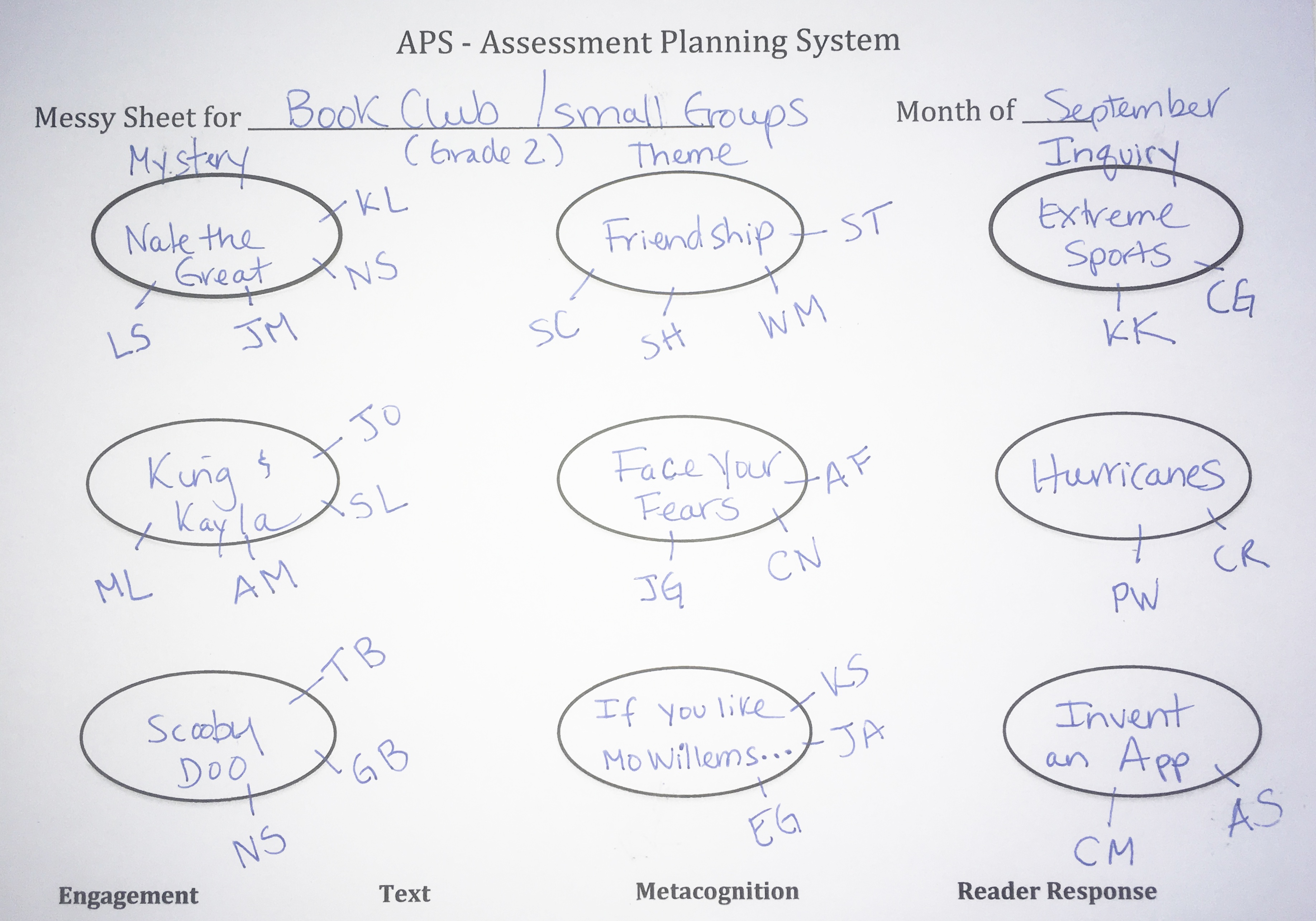
3. Organizing the Classroom Library
How does talking with our readers to collect formative data about book choice relate to book supply and organization? Well, our conversations with students about their reading lives prepare us to help connect each of them with the right book at the right time. When we organize and reorganize our books into baskets that reflect the students in front of us, we are using our formative data purposefully and meaningfully. Better yet, when we include our students in the process by having them join us in organizing and reorganizing books, we are helping them develop a reading identity. Often the kids themselves will come up with a topic, study, or type of book to make a basket for, and then they help us find books in the bookroom, school library and the classroom library to fill those baskets. This not only revitalizes the classroom library, it gives us critical information about our students and helps our students think about books in new ways. When we watch how our students interact with books and allow them to create text sets it provides a window into how they comprehend and respond to books. Not to mention – a good laugh now and then! Here are some text sets created by and for students:
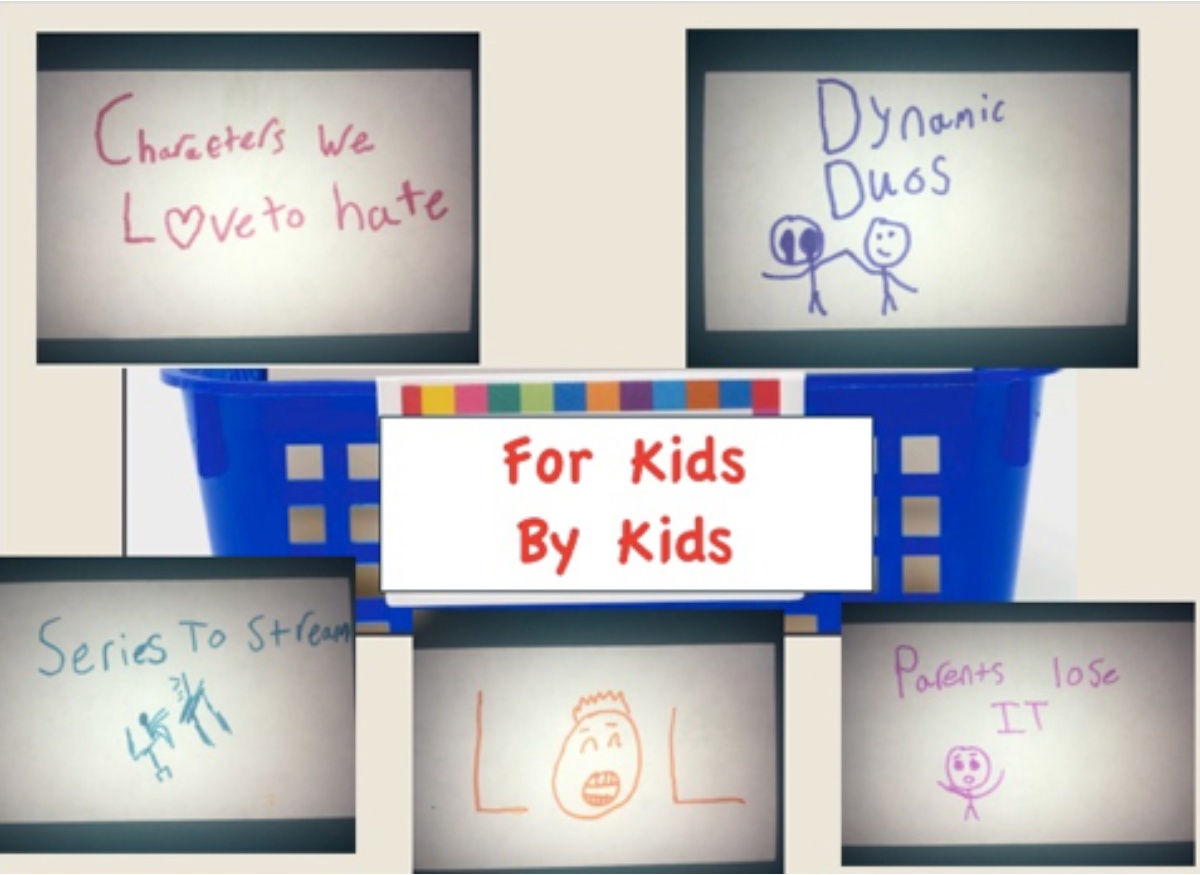
The term lifelong reader is more than a slogan or jargon in a mission statement. Lifelong readers need passion, agency, and a sense of inquiry in their reading lives. A person who reads for a lifetime is a person who is engaged in all aspects of their life. They need to have a disposition for learning, connecting, responding, and taking action. Students also need to read with accuracy and comprehension. They need to be active, metacognitive and proficient readers. Becoming a lifelong reader requires both skills and habits. Books are our tools to develop lifelong readers. The only way to get to know our students as readers and to engage them as readers is by supporting them in creating the habits of a reader and by helping them, ultimately, do this work for themselves.

